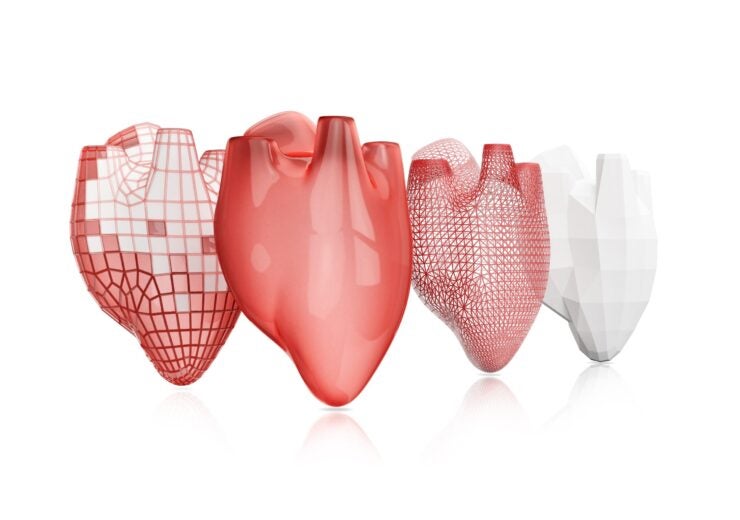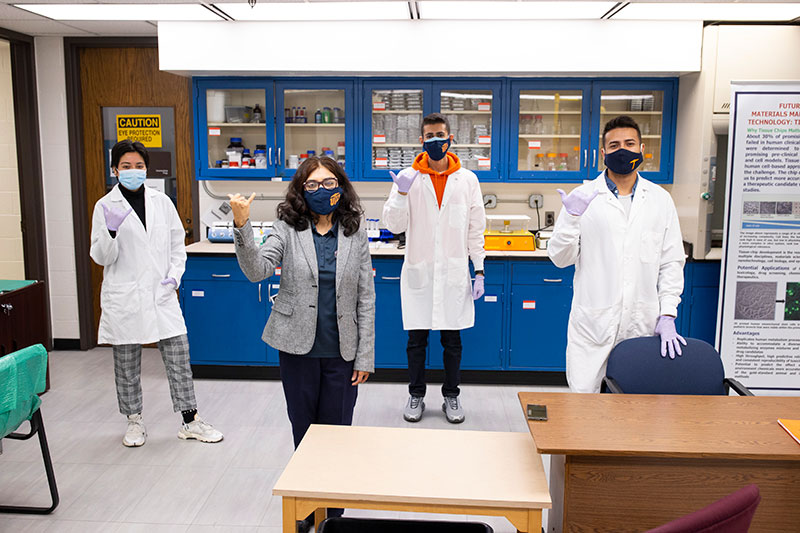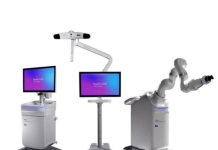A university research team will assess how type 2 diabetes-related heart problems like cardiomyopathy progress in the human body

Cardiomyopathy is a severe heart condition often experienced by patients with type 2 diabetes (Credit: Iaremenko Sergii/Shutterstock)
The University of Texas at El Paso (UTEP) has received a $1.2m grant to investigate diabetes-related heart problems using 3D bioprinting.
Its research will look at how cardiomyopathy – a potentially life-threatening cardiac condition often experienced by patients with type 2 diabetes – progresses in the human body.
Through a project made possible by National Institutes of Health (NIH) funding, the team of UTEP biomedical engineering students will bioprint a model of the heart using actual cardiac tissue from both diabetic and healthy donors.
The model will then be powered by an electrical rhythm, enabling it to contract and relax as a human heart would, and used to advance understanding of how type 2 diabetes impacts cardiac function – as well as assessing how certain FDA-approved drugs affect the organ.
Dr Binata Joddar, an associate professor of biomedical engineering in the metallurgy, materials and biomedical engineering department at UTEP who will lead this project, said: “We are going to compare how the progression of diabetes is affecting the functions of healthy, and diabetic, cells and tissue.
“We are going to study the effect of diabetes progression and how it affects the normal electrical rhythm of the heart when diabetes is advancing in these cells – and how it impacts the individual behaviour of the cells.”
What is cardiomyopathy?
The UTEP team’s research will focus on cardiomyopathy – a heart complication often experienced by patients with type 2 diabetes.
It is characterised by the wall of the heart remodelling itself and potentially becoming either thinner or thicker, affecting the heart’s ability to pump blood and properly oxygenate the body.
This critical condition often leads to severe outcomes for patients, such as heart failure and, ultimately, death.
“Cardiomyopathy is a huge problem for type 2 diabetes patients,” said Joddar.
“There is a lack of targeted treatment for this condition – it can only be diagnosed by clinicians and, once diagnosed, there is only symptom management available with no real cure.”
Investigating diabetes-related heart problems
Once Joddar and her team of student researchers have created the cardiac tissue model, they will also be able to use it for cardiac toxicity screening to see how certain common drugs approved by the US FDA (Food and Drug Administration) impact the human heart.
“Patients with diabetes, cancer and other diseases typically take a lot of drugs to treat their symptoms, but often a little of the dose gets mixed in the bloodstream and circulates through the heart muscle,” said Joddar. “This can be toxic to cardiac tissue.
“The cardiac model we create can be used to screen the toxicity of certain common drugs.”

UTEP has stated the project will also expose its students to bioengineering research and provide hands-on experience to empower younger scientists and engineers advancing diabetes research and awareness.
Dr Patricia Nava, dean of UTEP’s college of engineering, said: “Dr Joddar’s research is both innovative and impactful.
“We are proud to have the facilities and capacity for her to carry out her comparative studies of diabetic and healthy cardiac tissue and changes invoked by medication, as this is sure to shed light not only on basic research, but also clinical treatment of patients.
“This innovative research is important to the community and global population of diabetes patients, and will be a prime opportunity for UTEP engineering students to contribute to impactful, life-changing research.”


